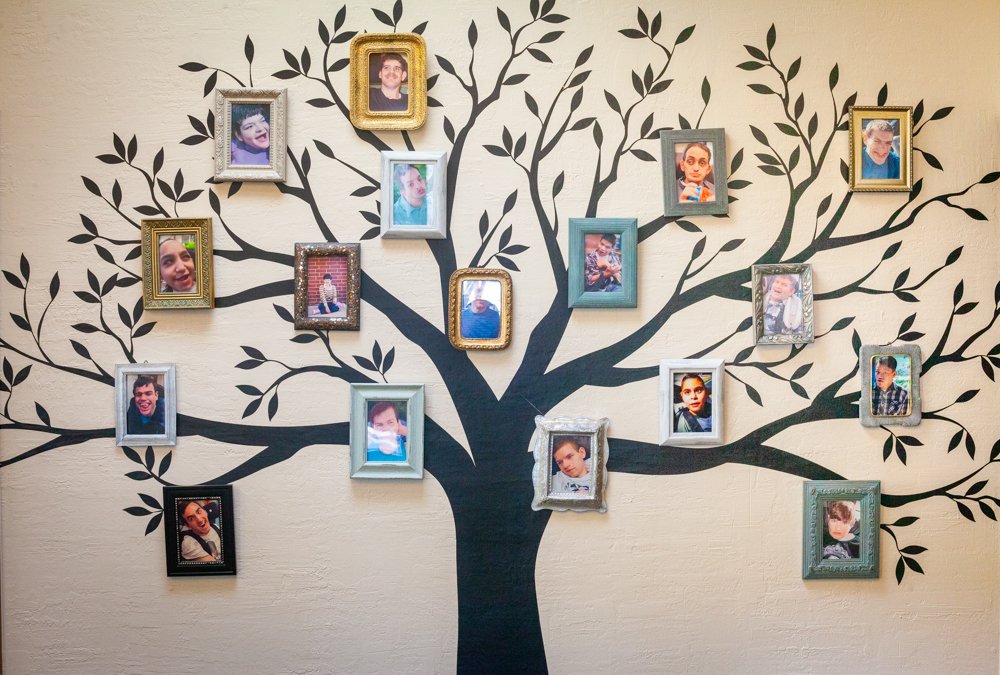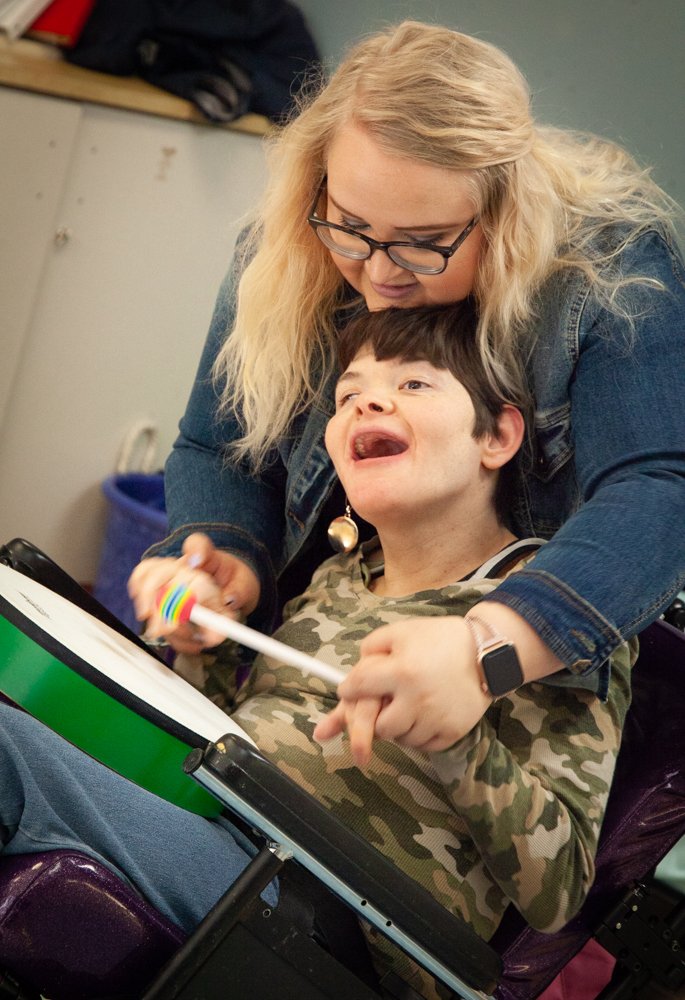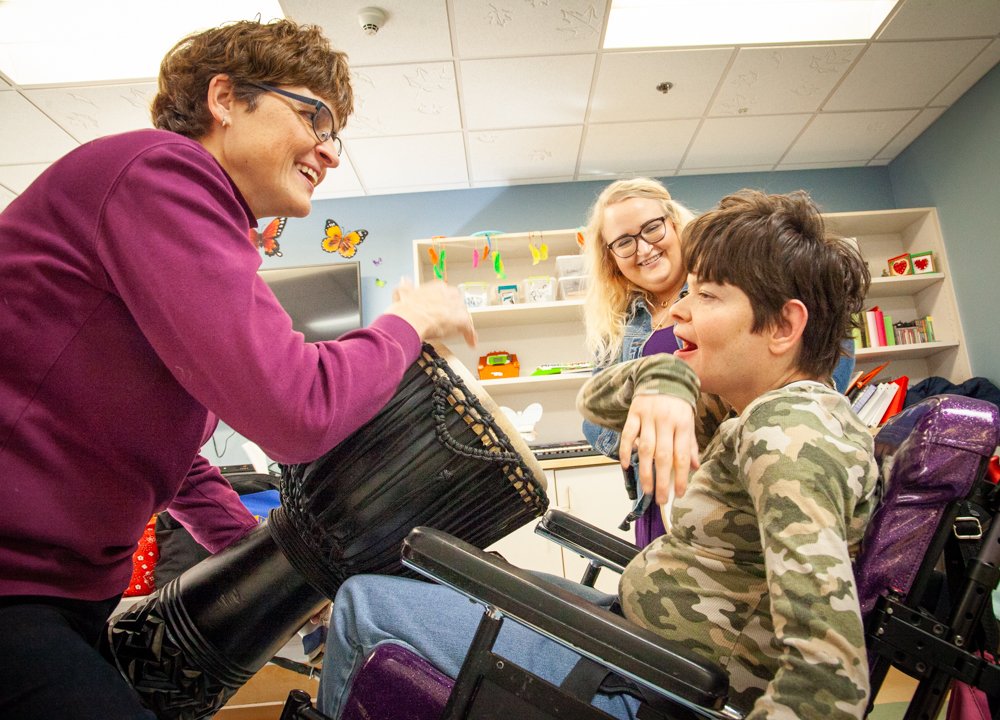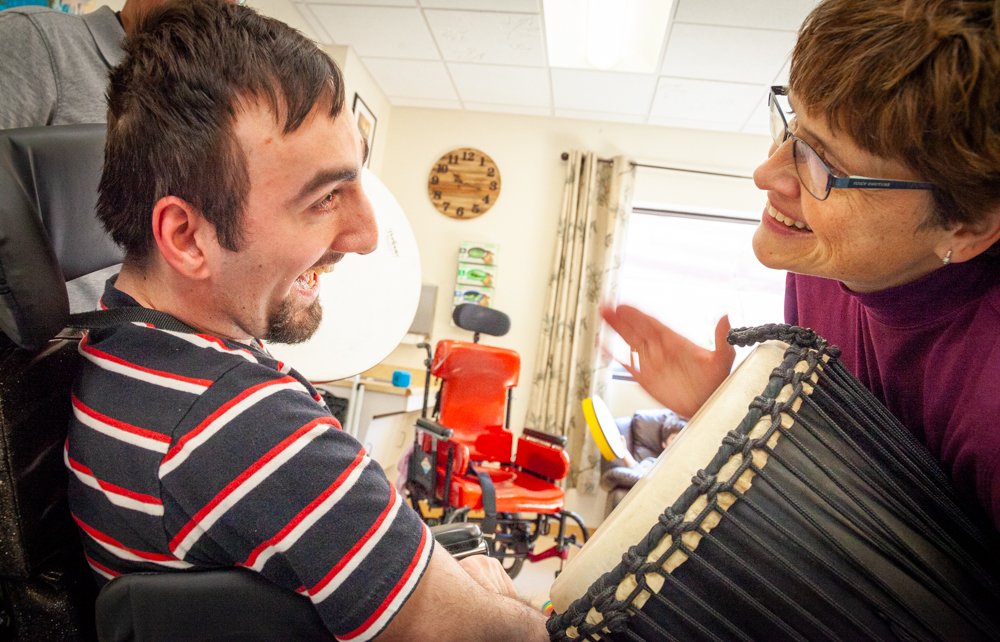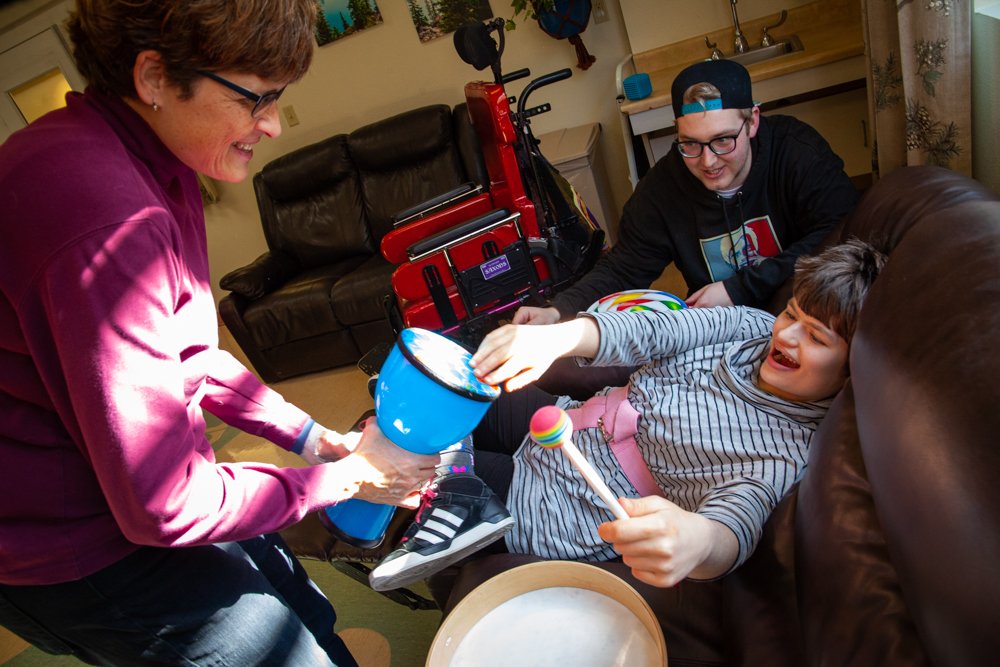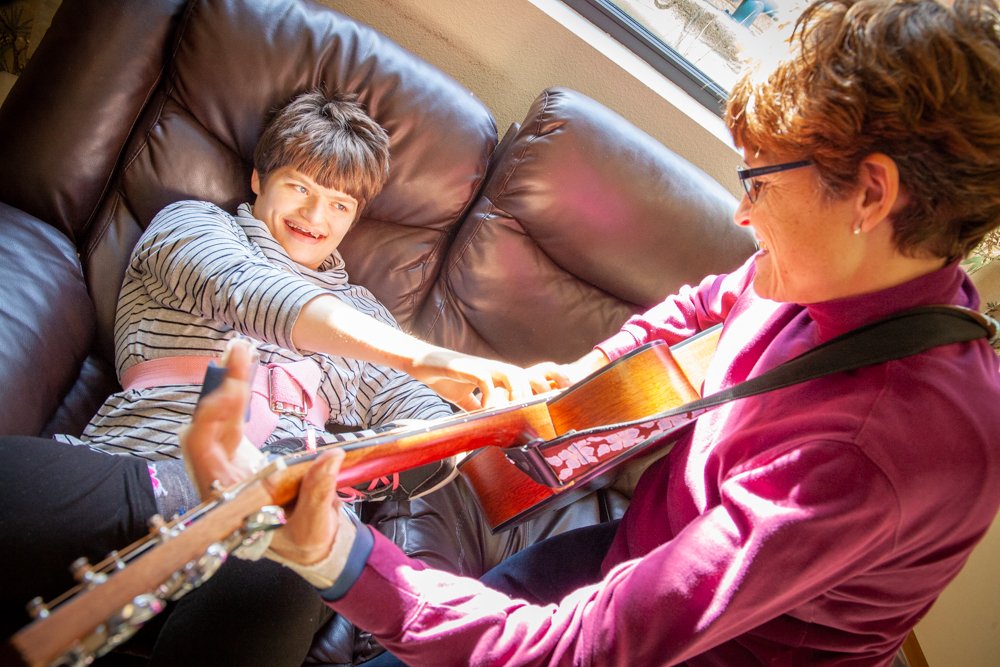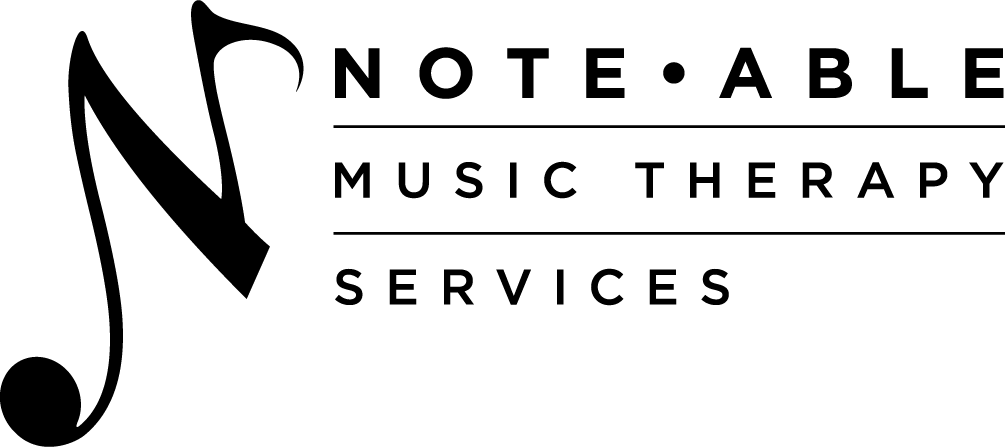NMTS at Eagle Valley Children’s Home
Eagle Valley Children’s Home (EVCH) is a facility for children and adults with developmental disabilities in Carson City and is entering its 75th year. Their mission is to provide the highest quality service to people with intellectual and developmental disabilities. Currently there are 18 children and adults living in EVCH, ranging in age from nine to 53. All of the residents will likely live in the home for the rest of their lives. Note-Able Music Therapy Services (NMTS) provides weekly music therapy sessions to address the physical, mental and social health of the residents.
A Home rather than an ‘Institution’
When you enter a home, you are likely to see framed portraits of family members. It’s a way of celebrating and embracing family; a way to express to visitors or a simple reminder to oneself, “these are my loved ones.” Eagle Valley Children’s Home is no different. As you enter, you’ll see eighteen portraits that create the EVCH family tree.
“We don’t want it to feel like an institution,” says Donna Clarke, who has been at EVCH for 25 years and has been the Executive Director for a year.
“It’s a ‘homey’ environment. Everything we do is so specific to each client. And we want them to have fun, and we want them to be happy. So we’re really focused on all that,” Clarke adds.
Music Therapy at Eagle Valley
Part of the warmth of “home” includes trust rooted in stability, knowing there are people who care for you and show up for you routinely. At EVCH, music therapy is an important part of that routine, stability, and feeling of home.
For the past three years, music therapist Sharon Hickox has been coming to EVCH with a bag of shakers, drums, xylophones, and a guitar on her back. During an important hour each week, Hickox utilizes music and instruments as tools for connection and expression with the EVCH residents and staff.
How Music Therapy improves physical, mental and social health
“You can tell them ‘Okay, you’re gonna have music therapy’ and they’re very excited,” says Clarke.
Their excitement is well validated. The majority of EVCH residents are non-verbal and have limited physical mobility. Music therapy is an opportunity for them to express their emotions, move their bodies, and interact with one another and staff in a fun, creative environment. During music therapy, they are encouraged to move, play, make noise, and have fun. Each person is supported to engage as fully as possible and connect with each other, supporting that sense of home.
Music therapy also supports the residents’ social development. “For training purpose, it’s nice because they’re learning social skills as well. They know what to expect and how to behave and I think that’s a real important thing to.” Clarke continues to elaborate on the holistic perspective of music therapy saying,”It allows our clients to emotionally express themselves.”
Music therapy is fun
At the beginning of each session, Hickox walks around greeting each person individually while strumming her guitar and singing the ‘Hello’ song. Some get so excited that they reach out to play and she lets them strum. After ‘Hello’ she brings out maracas, shakers and rhythm sticks and everyone gets their own pair to play with. These instruments are used as tools to build physical skills, getting them to bring their hands together to clap or to reach up and reach out or move their feet.
Though skill development is a top priority, Hickox has a perspective that balances it. “I think sometimes it’s just (about), is this moment a happier moment? Are we having a fun time right now?”, said Hickox.
Imagine the sound
With the sound of the shakers, the room transforms awakening a playfulness that seemed dormant moments before. Next, Hickox brings out a djembe and leans the drum in a way so everyone can feel the vibrations and play rhythms together.
It’s an hour filled with lots of noise, lots of music, and lots of smiles. To someone expecting a traditional therapy session, it might be chaotic in comparison but the energy is refreshing to everyone in the room.
Impact of music therapy
“Music touches everybody in their own way. You can see it on everybody’s faces, the different feelings that they get by participating in music. You can see from when Sharon first started until now, the growth that every client has had,” says Jessica, who has been working with clients directly for ten years.
“Sharon gives them independence,” she says.
When music therapy is done everyone is in a better mood.
“They’re in a better place in that moment in that day. They all feel better. So it’s that’s really cool to see that just that hour that we had with you totally made their entire day,” says Jessica.
